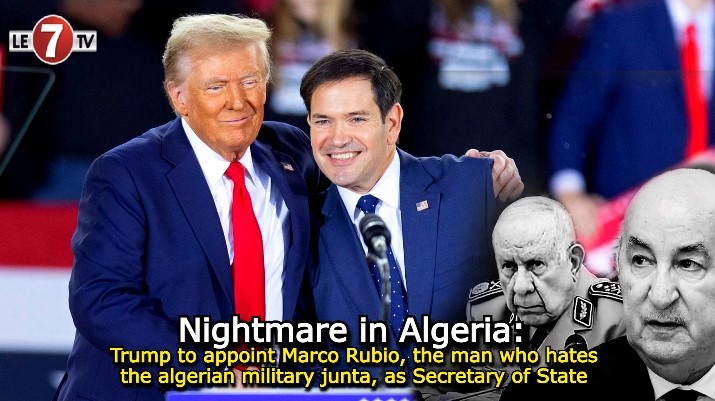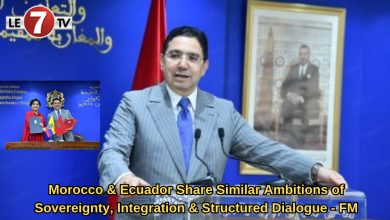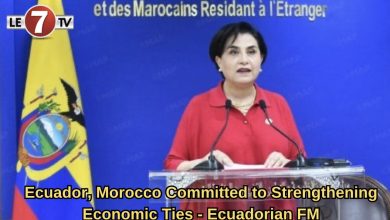
Algeria could find itself in a particularly delicate political and diplomatic situation with the potential appointment of Marco Rubio, Republican Senator from Florida and a fierce opponent of the Algerian military junta, as Secretary of State in the Trump administration. This scenario represents nothing less than the materialization of a nightmare for the military regime in Algiers, already isolated and under the weight of international criticism.
Rubio: A Sworn Enemy of Algiers
Marco Rubio is one of the most vocal American politicians against Algeria. For years, he has denounced the authoritarian nature of the Algerian regime, going as far as to demand sanctions under the Countering America’s Adversaries Through Sanctions Act (CAATSA), a law aimed at countering America’s adversaries. Known for his hawkish foreign policy stance, Rubio has repeatedly highlighted human rights abuses and religious persecution in Algeria, particularly the restrictions imposed on Christian communities. Furthermore, his critiques have regularly spotlighted dubious connections between the Algerian junta and controversial regimes such as communist Cuba.
With Rubio at the helm of American diplomacy, it’s clear that Washington’s stance towards Algeria could become even more stringent. The military junta, accustomed to sidestepping criticism under the guise of false anti-colonial claims, would find itself facing an American Secretary of State unwilling to tolerate its maneuvers and ambiguous alliances.
A Hardline Team Against Algeria and Its Allies
Marco Rubio wouldn’t be alone in this crusade. Other figures rumored for key positions in the Trump administration share a hardline and inflexible stance against authoritarian regimes. Michael Waltz, also expected to take on the role of National Security Advisor, has frequently voiced his opposition to Algeria’s questionable alliances. The influence of these “hawks” would signify a strategic shift for the United States, with a foreign policy more focused on confronting authoritarian regimes, including those hiding behind populist slogans.
In this setup, the Trump administration would represent a genuine threat to the Algerian regime, cornered by an American diplomacy resolutely hostile and prepared to openly denounce the abuses and oppression of the Algerian people by a corrupt military elite detached from its population.
The Imminent Diplomatic Isolation of the Algerian Junta
As Algeria tries to maintain a respectable image on the international stage, a strong stance by the United States could create a domino effect. Rubio has already mentioned sanctions, which could prompt other nations to reassess their relations with Algeria. Facing a determined American administration, the junta’s attempts to present itself as a model of social justice or a protector of freedoms could quickly crumble, revealing a reality marred by repression, corruption, and inefficiency.
Moreover, the potential appointment of figures like Elise Stefanik to the United Nations—known for her directness and commitment to human rights—would be another alarm signal for the Algerian military regime. Stefanik has not hesitated to criticize institutions like the UN for their contradictions, and her sharp gaze could focus with renewed intensity on the Algerian regime’s manipulations within the organization.
An Irreversible Shift in International Relations for Algeria
For the Algerian junta, Marco Rubio’s appointment could mark the beginning of a period of severe diplomatic instability and exclusion on the international stage.
Abderrazzak Boussaid/Le7tv








